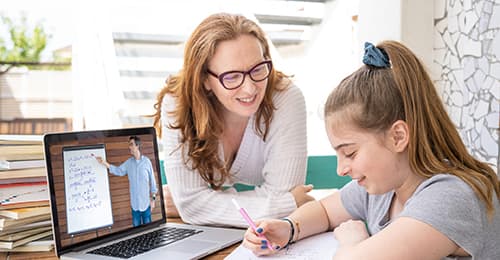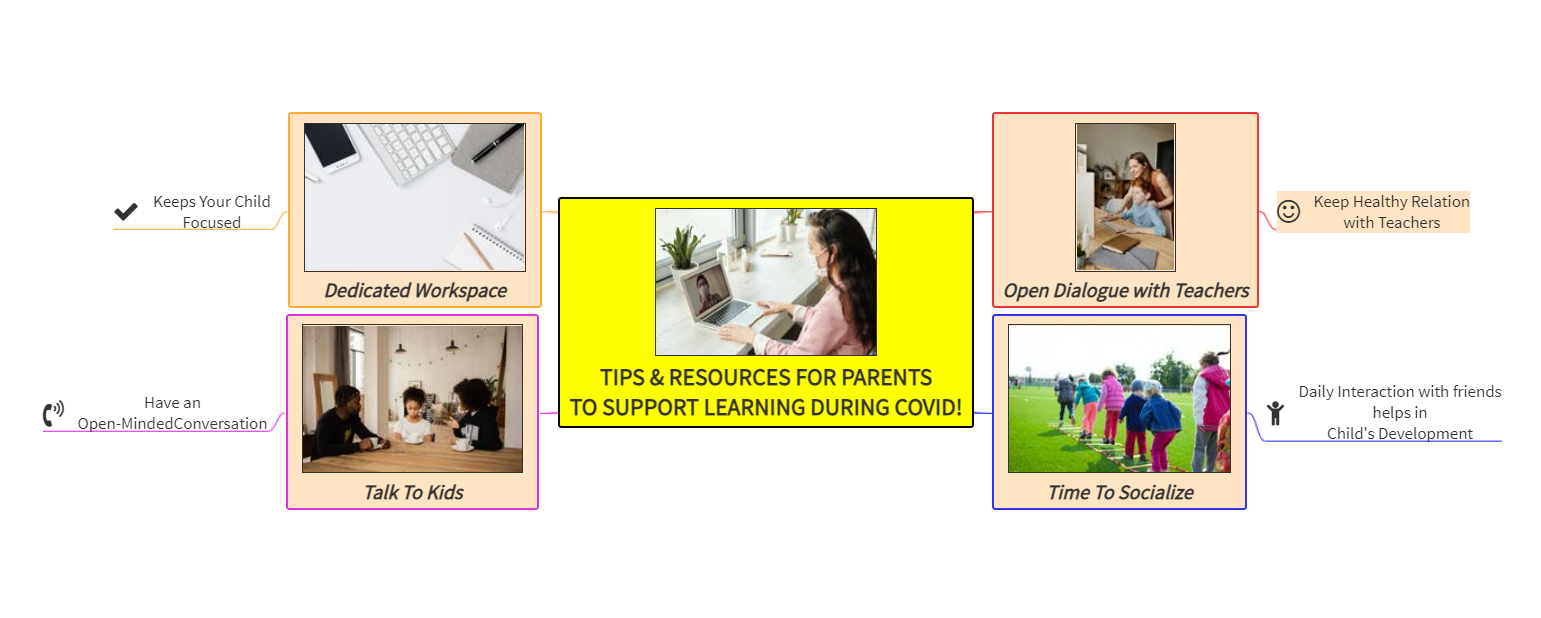Tips and Resources for Parents to Support
Social and Emotional Learning During COVID
Online learning is complex for everyone. With a lack of structure, interaction, and extracurriculars, kids have a much harder time focusing, motivating themselves, and reaching out for help. Especially kids with LD. The uncertainties during this time are still endless. Here are some other recommendations for parents to think about to get the most out of remote learning.

Keep an open dialogue with your teachers. It’s essential to establish a good relationship with a teacher, so you can figure out how to help them together when your child is struggling. Parents and teachers tend to see different things from students in the “classroom” and at home, so it’s essential to work together to have a complete picture of the student.
Create a dedicated workspace. A dedicated workspace helps to keep your child focused and stay on task. Whether they are at a desk in their room or at the kitchen table, working at the same space every day helps them mentally prepare for the school day ahead and shift their mindset from “home” to “school.”
Give them time to socialize. One of the most challenging parts of distance learning for kids is being away from their friends. However, the daily interactions and activities they experience with their classmates are an essential part of their development. Maintaining those friendships while keeping your child safe is difficult, but video calls have made it easy to schedule some virtual hang time. Set up a time to virtually hang out with their friends during non-school hours.
Talk to your child if they don’t seem engaged. To have a productive conversation with them about this tricky subject, try to pick the right moment to talk to them. “Don’t talk to the child when things are terrible,” says Dr. Badaly. “If they’re throwing a tantrum and saying, ‘I’m not going to do this,’ that’s not the right time to talk.” Also, validate their experience. Letting kids know they’re not alone can help them confide in you about what they’re going through. Lastly, ask them open-ended questions, so they have room to say what they want to say.
Give yourself a break. It’s natural to feel overwhelmed by managing kids’ schoolwork on top of daily life’s other burdens during a pandemic. And the truth is that there’s no easy fix for many of the challenges that families face. That’s why it’s so important to cut yourself plenty of slack. That also sets a good example for your kids. When you take time to relax, you show them that work isn’t everything and that it’s okay to be less than perfect.

About Author

Peggy Stern is an Academy Award-winning film Producer/Director who has been working for more than 30 years. She is the Founder and CEO at SuperDville, LLC (formally Dyslexiaville). She shares her experiences growing up with dyslexia and her vision to change the future for the next generation of children with learning differences through helping them become their own storytellers. She received her BA from Harvard University and her senior thesis film STEPHANIE, was turned into a PBS documentary Special and broadcast nationally.
Related Blogs:
Keeping Kids Engaged in Remote Learning
6 Tips for Teaching Remotely Over the Long Haul of the Coronavirus
Modifying an IEP or 504 for Distance or Hybrid Learning
6 Simple Tips for Remote Learning


